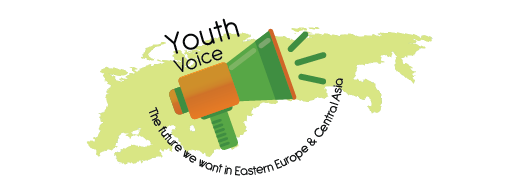Sexual harassment is defined as unwelcome behavior of a sexual nature. (1) Unwelcome behavior is behavior that a person doesn’t ask for and considers offensive which means any kind of activities without victim’s consent. Consent is knowing, voluntary and clear permission by word or action, by all participants to a sexual activity. Since individuals may experience the same interaction in different ways, it is the responsibility of each party to make certain that the other has consented before engaging in the activity.(2)
One can experience sexual harassment regardless of their gender; still LGBT community and women experience it the most and harder wherefore balance of power. Shocking numbers from a research called ‘National Research on Domestic Violence Against Women in Turkey’ reveals that rate of sexual harassment that married women face in their life is 12% and physical violence rate is 36%. In Istanbul, metropolitan city, nearly 29% of women are exposed to both sexual and physical harassment. 2 out of 10 married women, who married before the age of 18, said they were exposed to sexual harassment while this number is 1 out of 10 among women who were married after the age of 18.
Young people from Y-PEER Turkey and Community Volunteers Foundation (Toplum Gönüllüleri Vakfı) decided to organize gatherings with/for youth where they can come together to discuss sexual harassment after realizing number of related events started to be more visible among mainstream media. As peer educators we wanted to organize a series of gatherings with/for young people, so we can reach and meet with our peers from different backgrounds. Our starting point was to organize alternative events which cover sexual and reproductive health & rights that were beyond our usual sexual and reproductive health & rights (SRHR) peer education curricula. For the first event organized in our hub there were 12 young people who had strong motivation to discuss ‘sexual harasment’ more in depth, develop a broader understanding and share their own experiences. Participants of the gathering were identified based on open invitation to Y-PEER peer educators and partner NGOs working in SRHR field in Ankara. Half of the participants were Y-PEER peer educators and the other half came from partner NGOs. Participants were university students and most of them were women.
Gathering was started discussing for a definition of the sexual harassment according to participants. It was not a classic peer education or training session but more like a round table discussion where everyone has equal shared positions. Event was a semi-structured one and facilitated by one of the Y-PEER focal points. Facilitator’s role was to ensure participants to discuss 3-4 questions that can help the discussion be more fruitful. Some of the questions were: ‘What kind of behaviours can be described as sexual harassment? Who is the most affected group by this? Did we ever experience sexual harassment?’ In regards to group mostly affected by sexual harassment, some said women are the ones who are mostly affected while some said actually men are facing it too however sometimes they just cannot notice it because society have a shallow understanding about its definition. When trying to describe behaviours that counts as sexual harassment, participants started with rape; we realized that the key point is one’s consent, no matter if they are male or female. For example, One of the partners would be into having sex at the beginning but after a while he/she may refuse to go on; forcing partner to keep going is one kind of sexual harassment.
Following to that, many of us started to share some of our experiences. For more comfortable environment we devided into smallers groups as women and men. Then everyone took the floor to tell their harassment experiences because it felt more comfortable when we were with the ones who had similiar experiences. Because we knew that shared similiar experiences bring people into a mutual point where people felt understood. The most discussed two experiences were following:
“When I was walking home I was cat called by a middle aged men. But more odd thing is I was told by some of my friends that I should enjoy his attention.”
“When I had a boyfriend he was always trying to control what I am wearing and made me feel so uncomfortable because of my mode of dressing. If he couldn’t take the control over my choices he was texting me all day to check if I am cheating on him or hanging with some other men etc. He was so jealous of me. And this scenario continued till I realized I have sexually abused by my boyfriend for years.”
While we were critizing these real-life stories the group concluded sexual harassment doesn’t have to be only physical. It can be in different forms of emotional and verbal abuse.
An then bigger group came together and we reflected what we talked within our small groups. At the end, it was realized that we need to learn what to do when we experience sexual harassment. Because of the fact that no one was a professional, it was arrived at a consensus that an expert should be invited to gatherings as a guest so that we can learn about legal procedure and ask the person our questions. So we got preperations started.
Stay tuned fellows!
Helpful Sources:
(1) Preventing Sexual Harassment (BNA Communications, Inc.) SDC IP .73 1992 Manual
(2) Colgate University Support Resources Education (Definitions And Terms Related To Sexual Violence) www.colgate.edu



Get Social